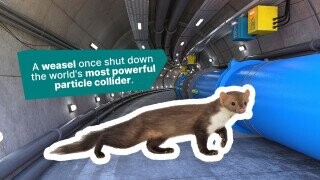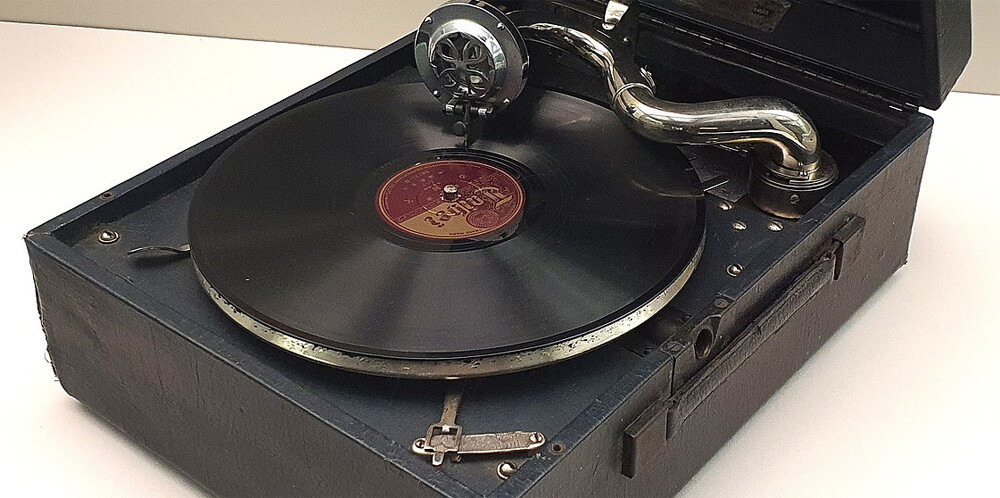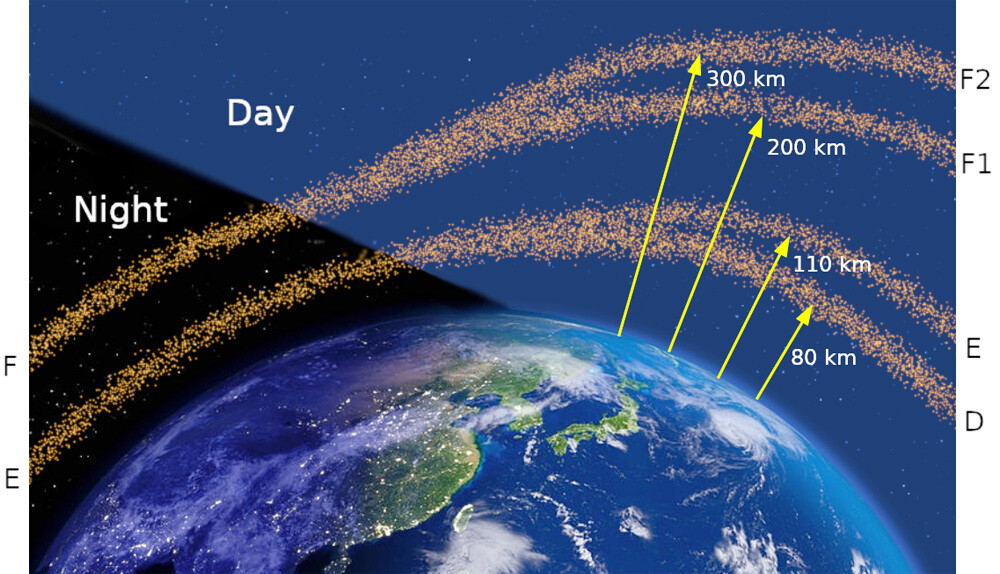5 Ways the Natural World Stops Tech From Working

Technology is what happens when we look at nature and say, “No.” Nature wants us to starve to death, so we invented agriculture. Nature wants us to freeze to death, so we invented socks. Nature wants to bore us to death, so we invented billiards. But sometimes, our tech breaks down. Sometimes, it’s nature’s turn to say no.
Go to a High Enough Elevation, and Hard Drives Stop Functioning
Hard drives work kind of like record players. And whenever someone has drawn that comparison during the last several decades, it’s prompted jokes about how kids today don’t know what a record player is. Still, every single person reading this can picture a record player in their mind, so shut up, and let’s get back to the explanation.

Like a record player, a hard drive contains a spinning medium that stores stuff. It’s called the platter. Like a record player, a hard drive has a thingy that reads from the spinning platter, and can also write to it. It’s called the head. Unlike a record player, the head of a hard drive does not make contact with the platter. It can read and write upon the platter from a tiny distance away, using the power of magnetism.
It can do that, and it must do that. Because the platter spins thousands of times every minute, and if a head ever scratched against it directly, then, well, we don’t want to use the word “apocalypse” here, but it wouldn’t be great for the drive. Though the cushion of air between the head and the platter measures just nanometers across, it provides vital lubrication, and we all know the importance of lubricating the head.

That cushion can vanish if the air becomes too thin. This happens if 1) the atmosphere suddenly gets sucked away into a portal; or 2) you ascend to a high altitude, where the atmosphere is less dense. This is an actual issue that mountain climbers have faced. They’d carry oxygen for their own lungs when they got too high, but they never considered that their laptops could suffocate.
We have ways around this. When you decide to bring a laptop up Mount Everest today, you’ll probably have one with a tiny solid state drive, with no moving parts and no need for air cushions. You can also get one that’s hermetically sealed, unaffected by outside air pressure. A drive like that can even contain helium, instead of ordinary air. One disadvantage, though, is all audio files are replaced by songs by Alvin and the Chipmunks.
The Nighttime Messes with AM Broadcasts
This one’s for those of you old enough to feel emotionally attached to AM radio, as well as those of you who know nothing about it but are curious. Radio is not a dead medium, we promise. Most Americans still listen to the radio regularly, vastly more than stream music or listen to podcasts, and that’s also true among Gen Z.
AM radio stations, though, tend to get static-y at night. If you’ve ever noticed that, you might have figured it’s because radio signals don’t work as well at night. Because of, we don’t know, the constellation Orion? Or maybe AM waves draw their power from sunlight?

The thing is, AM signals don’t really work any worse at night. In fact, they work better at night. Around 100 miles of atmosphere contain charged particles, thanks to the sun throwing its rays at us. At night, the particles in this ionosphere have a chance to slam back into each other and neutralize. The lowest layer of the ionosphere temporarily vanishes, leaving only charged particles that are farther up. AM signals bounce off the ionosphere; so at night, they bounce of a layer of air that’s higher, which sends the waves traveling farther.

All of which should mean that AM stations gain power at night. That would be a problem, though. The stations are spaced out so that none overlap during the day — each station might broadcast 100 miles in each direction but no farther. At night, these same signals would go farther, so if you tuned in to any one frequency, you’d hear multiple stations at the same time. This could theoretically create great musical mashups, but most of the time, it sparks discordant madness.
So the FCC requires AM stations to lower their broadcast strength at night. That means you might not be able to hear your station that well, but getting to hear three stations simultaneously would be even worse.
GPS Stops Working When You Move Too Fast
GPS is great. It works when you’re walking down the street. It works when you’re in a car. It even works in fast-moving airplanes. But if you were ever to find yourself moving at (say) 1,200 miles per hour, you’d find that your GPS device stops functioning. Same deal if (slightly more likely), you find yourself 60,000 feet in the air, which is above a typical plane’s altitude but is lower than some clouds' peaks.

That sounds like a pretty reasonable shortcoming for any tech. But this is an enforced limit by the U.S. military. Anything traveling that fast or that high might not be a person at all. It might be a missile, and it might be headed our way, so we disable GPS at those speeds. Hopefully that way, it gets lost en route and hits Canada.
America is able to choose when to enable or disable GPS during any conditions because America controls the GPS service, all on its own. It provides the service to the world for free, while spending $2 billion a year on maintenance, which is arguably well worth it for the ability to dictate terms.

Since this is an artificial limit, we’ve decided to relax the rules recently, so it is possible for you to get around them. This is essential, of course, if we have any plans of navigating via GPS once we’re all on the Moon.
Escalators Stop Working When Too Much Shit Gets in There
Here’s a math problem for you to puzzle over: You have two routes for reaching the next floor: an escalator and a staircase. Walking up the escalator takes less time than walking up the staircase, of course. But if you get stuck behind a group of people who stand still, the escalator becomes the slower option. Let’s assume you cannot squeeze past escalator squatters. How far up the escalator does the nearest group of squatters have to stand for the escalator to remain the faster route?
Now that we’ve got you thinking about this, allow me to change topics and talk about poop.

Escalators shut down if enough stuff slides between those cracks and gums up the works. Escalators don’t pull stuff down there that easily — even if it traps your shoelace, an escalator will not pull your entire body below, leaving only your hollowed-out skinsuit. But if an escalator becomes a frequent dumping grounds for semi-liquid matter, that shit will absolutely shut the mechanism down. Such is the problem facing San Francisco, which finds itself repeatedly having to clean human feces out of escalator inner workings.
Lots of people sleep around the escalators, and lots of people use them as toilets. Police can arrest those who turn escalators into defeclators, but only if they catch them in the act. Some escalator designs are more shit-resistant, but replacing escalators costs a lot of money. This is good news for escalator repairmen, however, who were making $72 an hour in 2017 fixing Frisco escalators, some of which are out of operation more than 300 days a year. To lure in repairmen, who are in short supply, the city will occasionally guarantee that this particular escalator has no feces or urine in it.

The city did come up with a Band-Aid solution: Covering escalators in canopies at night, guarding them from all nearby assholes. This provides some relief, and shifts attention back to the real threat: slow walkers.
A Weasel Shut Down the Large Hadron Collider
The Large Hadron Collider (LHC) can do amazing stuff. It can create temperatures of 9.9 trillion degrees. You know how hot it gets on a really hot day? This has to be at least twice as hot as that. The LHC can accelerate particles to 0.999999990 times the speed of light. We stuck a “0” at the end of that number because without it, when we string out that many repeating digits after a decimal, people assume that’s shorthand for “the same number, repeating to infinity” — that’s how many 9s that is. It adds up to a speed just 7 miles per hour short of light speed.
Also, one time, a weasel shut the place down.

The collider is powered by electricity, and a weasel crawled into a transformer a few days before the collider was scheduled to restart in 2016. The weasel sizzled into weasel smoke, and it died managing to keep the Large Hadron Collider out of operation for several days.
This was still less weird than 2009, when the mighty machine had spent some time out of operation while it was undergoing tests in preparation for starting up properly. The power cut off, briefly raising temperatures to an unworkable level. The culprit in this case, reported sources, was a bird carrying a baguette.

When CERN was asked how a bird could lay low the mightier collider, they explained, “Of course, no such thing had happened.” Oh. So, no bird then? “To this day,” continued communications head James Gillies, “we do not know what caused the power cut, but it is true that feathers and bread were found at the site.” Ah. What Gillies was saying is that the collider wasn’t wrecked, it merely experienced a temperature spike, which would indeed have cost it a day had it been in operation, and bread bird traces were spotted at the scene of the crime? That’s good enough for us.
Fine, a bird didn’t actually destroy the LHC, disabling Earth’s defenses and bringing about the end of the world. Only one thing can do that. That thing, dear reader, is you.
Follow Ryan Menezes on Twitter for more stuff no one should see.